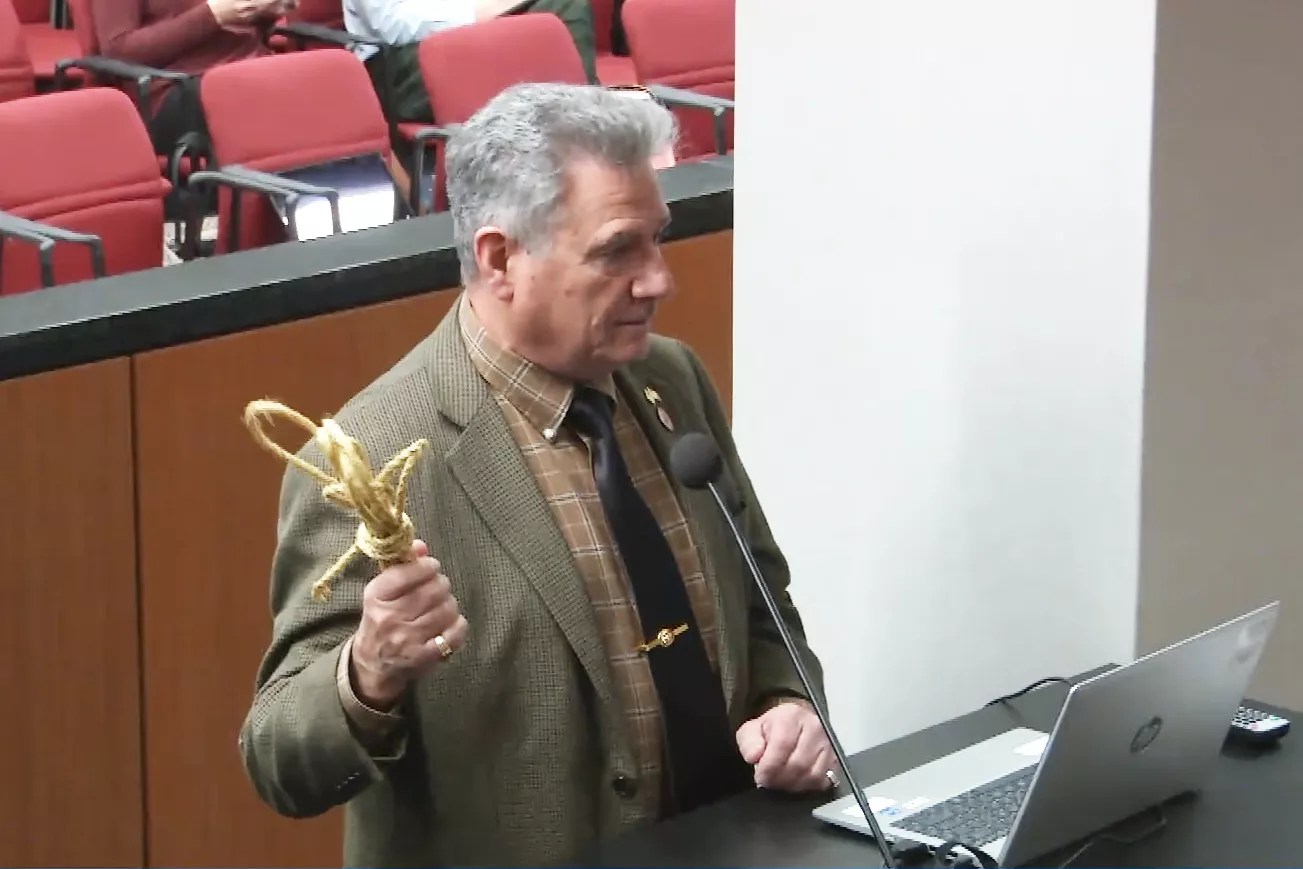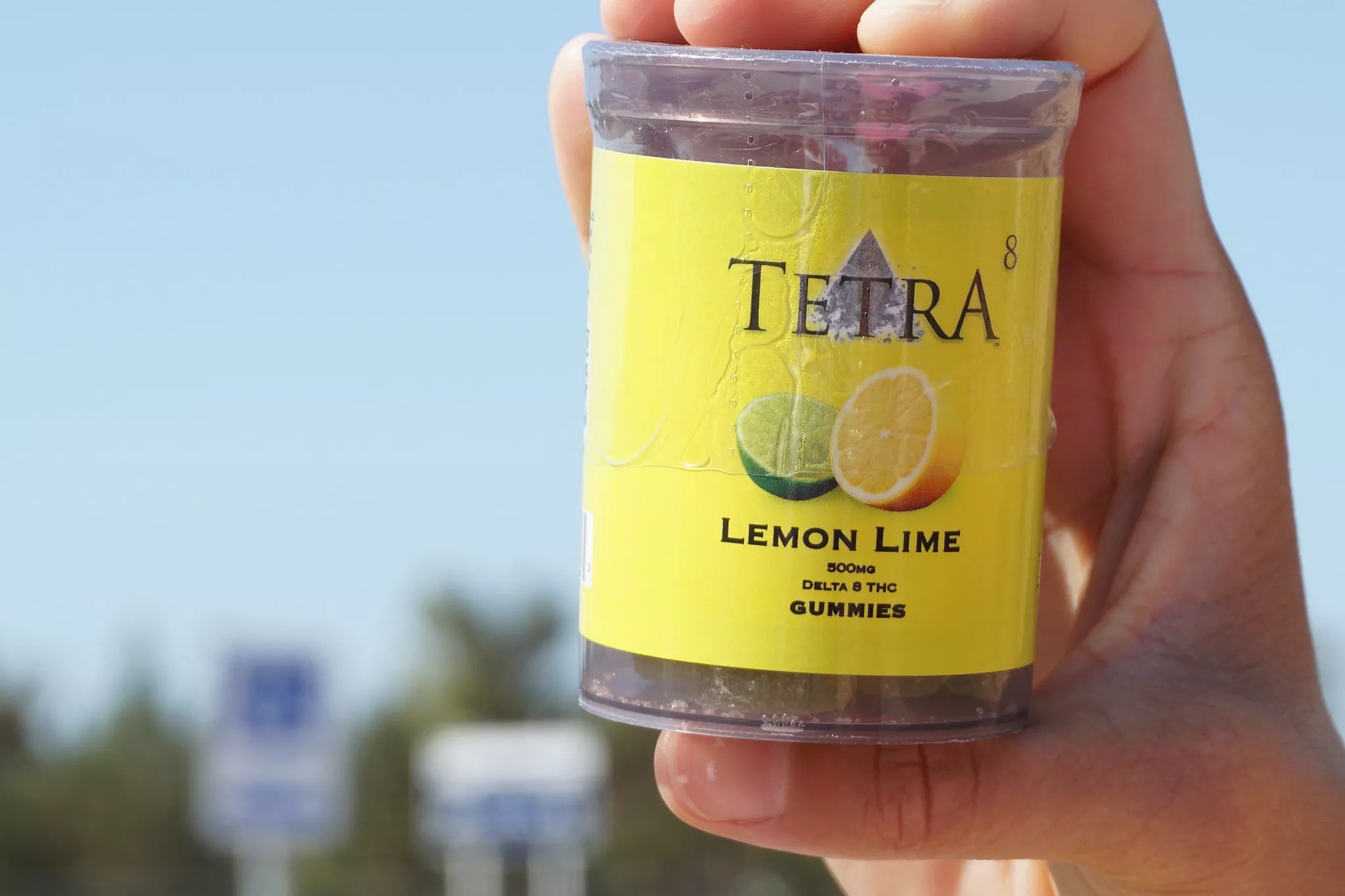
Arizona Senate

Audio By Carbonatix
Two bills in the Arizona Senate – SB 1453 and SB 1271 – highlight the ongoing battle over how to regulate industrial hemp and its potentially intoxicating byproducts such as delta-8 edibles.
Sponsored by Republican Senator Thomas Shope, SB 1453 would prohibit a person from producing or selling products that contain delta-8 THC without a medical or recreational dispensary license. SB 1271, Republican Senate Majority Leader Sonny Borrelli’s response to SB 1453, would keep the regulation of all hemp-derived products under the purview of the Arizona Department of Agriculture.
Delta-8 THC is one of more than 100 naturally occurring cannabinoids found in the cannabis sativa plant, of which marijuana and hemp are two varieties. While delta-8 THC is known to have psychoactive properties, the cannabis sativa plant only produces it in small quantities, so it is typically manufactured in concentrated amounts from hemp-derived CBD.
Currently, CBD products are regulated under the state agriculture department’s Industrial Hemp Program. The program’s framework was established by a Borrelli-sponsored bill in 2017. According to the program, hemp crops cannot exceed a 0.3 percent THC concentration by volume. However, the program does not regulate the byproducts of hemp crops, such as the delta-8 gummies consumers can purchase at some retail outlets. And therein lies the crux of SB 1453.
“The issue that we’re seeing in the real world is that because delta-8 is technically not illegal, there’s a lack of regulation,” Stephen Dudley, director of the Arizona Poison and Drug Information Center, said during a Senate Health and Human Services Committee hearing on SB 1453 on February 14.
“We see these synthetic products that have been independently lab tested to have hundreds, if not 1,000 times, the concentration of delta-8 THC that you would find in the naturally derived plants,” he added.
Dudley’s claim that independent testing has uncovered commercially available delta-8 products with high concentrations of THC was immediately challenged by Borrelli. “I’ve been in the trenches with the hemp program, and this is the first time I’m hearing that there’s a hemp product with THC levels that are illegal in Arizona. Bring me proof, and we can talk about it,” Borrelli said before shoving his microphone away and spinning in his chair.
Borrelli’s dismissive behavior continued throughout testimony from industry experts, including Pele Fischer, who spoke on behalf of the Arizona Dispensary Association. “This is just a turf war, but go ahead and speak,” Borrelli said prior to Fischer’s testimony.
Fischer – the principal of Peacock Legal, a Phoenix-based government affairs and legal consulting firm – said that SB 1453 addresses synthetic byproducts of hemp-derived products, not the regulation of crops. Borrelli, missing Fischer’s point, claimed that the livelihoods of hemp farmers would be harmed if regulations were put in place for delta-8 THC products.
“What we’re talking about in this bill is a public health crisis. There are products with over 0.3 percent THC being sold to kids in smoke shops and gas stations. You’ve heard from poison control that this is happening,” Fischer responded. “This isn’t a turf battle.”
Sully Sullivan, executive director of the Hemp Industry Trade Association of Arizona, opposed the bill. A former hemp farmer, Sullivan argued that after the hemp market crash in 2019, hemp-derived products such as delta-8 “have single-handedly saved the hemp industry.” Although he acknowledged that delta-8 needs to be regulated, he suggested that it should be done so by the state agriculture department.
“If we can clarify that [delta-8 products] are regulated by the Department of Ag, which it is clear in the law, then the Arizona industry can be revived and repaired. We can have a thriving industry in Arizona for hemp that can bring in more tax dollars and have more farmers and more small businesses and more jobs,” Sullivan said.
What Sullivan and Borrelli did not address was the testimony during the hearing about cases of children and adults who have experienced severe adverse reactions when consuming delta-8 products.
Daniel Brooks, medical director of the Banner Poison & Drug Information Center in Phoenix, testified that “at least once a month, we have someone who’s intubated in the NICU and one of the children’s hospitals in town.”
Borrelli flippantly responded with a question. “So let me get this straight. You’re saying a child bought something at a quarter store and thought they were buying a CBD product. It ended up being a synthetic CBD or whatever, and they got hospitalized for this?”
Brooks said “yes” before Borrelli continued his tirade. “You would think that that’d be all over the news – if something like that happened. I haven’t heard that. I haven’t seen that,” Borrelli said.
The bill was ultimately shot down in a 4-3 vote. Republican Senators Borrelli, Janae Shamp, and Justine Wadsack were joined by Senator Eva Burch, a Democrat, in voting against SB 1453. Two Democrats – Senators Sally Ann Gonzales and Theresa Hatathlie – joined Shope, a Republican, in voting for it.

A bill that would regulate products with delta-8, such as edibles sold at gas stations and other retail outlets, failed in a legislative committee.
Elsa Olofsson / Creative Commons
Rope Not Dope
Borrelli hasn’t just been leading the charge against SB 1453, he’s also been pushing for SB 1271, which would keep the regulation of industrial hemp with the state agriculture department.
On February 9, Borrelli introduced SB 1271 at the Senate Natural Resources, Energy and Water Committee waving a spool of hemp rope and spouting his favorite catchphrase, “rope not dope.”
Borrelli insisted several times during his testimony that hemp is derived from the cannabis sativa plant but does not have the same psychoactive properties as marijuana.
“Hemp is part of the cannabis family but it is not the intoxicant that a lot of folks like to go for,” Borrelli said.
SB 1271 does not address the claims of some cannabis industry insiders that there are currently commercially available hemp-derived products that contain high levels of delta-8. But the bill does mention testing for delta-9, the naturally occurring cannabinoid in the cannabis sativa plant.
The bill also removes the requirements for a licensed grower to notify the Department of Agriculture of the sale or distribution of industrial hemp. Furthermore, licensed growers are not required to report the amount of industrial hemp sold or to whom.
“Our bill is a small business bill, and a pro-jobs bill, and a pro-farmer bill, that if passed, would help energize the hemp industry in Arizona which has been pretty fractured,” Sullivan said at the hearing.
Fischer said that the Arizona Dispensary Association is “neutral on the bill,” but argued that there is a concerning loophole. “We look forward to working with the sponsor on tweaking some of the definitions to ensure that these loopholes for delta-8 and other intoxicating cannabinoids are excluded and properly regulated in the marijuana market,” Fischer said.
The Senate committee passed the bill 7-0 on February 9. It passed the full Senate 29-0 on February 20.